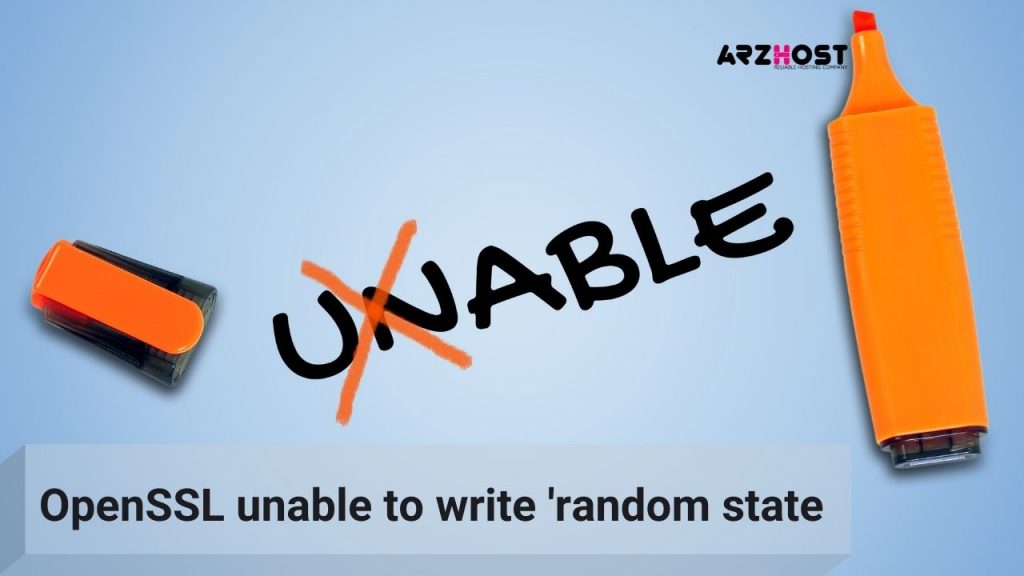Approval issues with a customer can trigger OpenSSL failures like “unfit to create ‘unpredictable state'”. This botch message is shown when it occurs.
OpenSSL unable to write ‘random state’ We have helped our customers a fair number of times to address OpenSSL-related issues as an element of our Server Support Services.
In this particular situation, we will examine why this slip-up occurs and how to fix it.
What is behind OpenSSL inadequate to form ‘unpredictable state’ errors?
This mix-up is educated about the way toward using OpenSSL requests. OpenSSL unable to write ‘random state’ It happens in view of specific components recorded underneath;
- Customer Permission issues when trying to make a record at $HOME/. rnd.
- Right when the customer record of the laborer isn’t selected with root-level assent in the home list.
- On the occasion that HOME or RANDFILE isn’t set, it will not be recognized during an OpenSSL cycle execution.
Guidelines to settle OpenSSL ill-suited to make ‘discretionary state’ error
Fixing this slip-up is basic. OpenSSL unable to write ‘random state’ To begin, if the. rnd record is guaranteed by root alone and not the customer then it is ideal to destroy this report and reissue the OpenSSL request through the request underneath;
sudo rm ~/. rnd
As communicated before the root customer might be the lone permitted owner of the records and to engage the customer to enjoy the benefits then basically offer to belong to the customer as well. OpenSSL unable to write ‘random state’ You can delegate file system approvals to the customer with the request under;
sudo chown $USER: $USER ~/. rnd
OpenSSL unable to write ‘random state’ On Windows, you can use the request brief executing the “Run as Administrator” mode to decide unable to make ‘sporadic state’ botch.
Setting the environment variable “RANDFILE” to the way where the “sporadic state” record is writable will similarly help with fixing this issue. For the present circumstance, you can use the request under;
set RANDFILE=C:\MyDir\.rnd
OpenSSL unable to write ‘random state’ Finally, exchanging the $RANDFLIE environment variable means allocating OpenSSL to use the record recorded as a printed copy subjective state where no default filename is set.
Conclusion
Best actions to fix “ill-suited to form sporadic state” OpenSSL error. Every so often the OpenSSL request line utility doesn’t stop with a “PRNG not developed” botch message, anyway fuss that it “can’t form ‘subjective state'”. OpenSSL unable to write ‘random state’ This message suggests the default developing report. A potential clarification is that no default filename is known because neither RANDFILE nor HOME is set.










